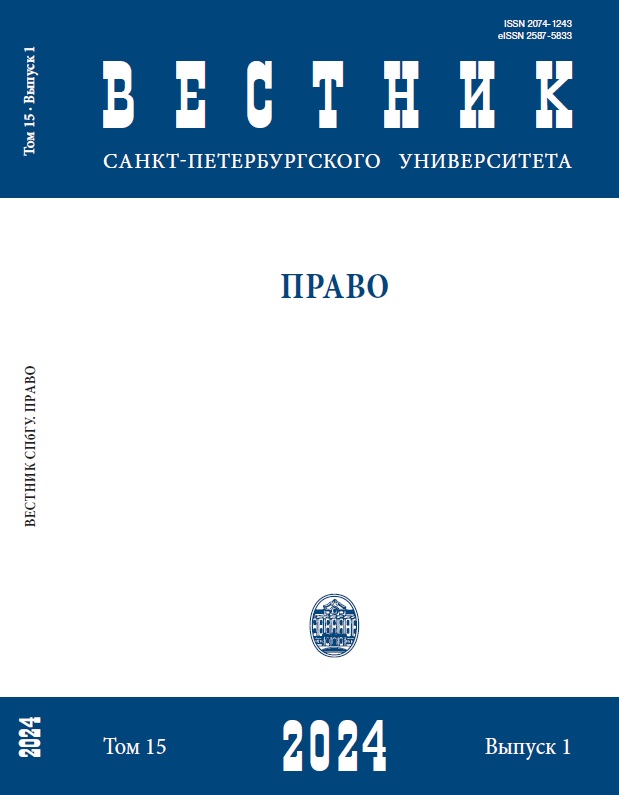The right to rehabilitation in the context of the right to enforce a court decision.
DOI:
https://doi.org/10.21638/spbu14.2024.103Abstract
The purpose of this article is to study the right to compensation for harm caused to a rehabilitated person in the context of the principle of enforceability of a court decision and the time frame for revising judicial acts provided for by the Criminal Procedure Code of the Russian Federation.
The right to rehabilitation is considered in its relation to the right to a legally established amount of compensation for harm caused. The author proves that the principle of enforceability of court decisions on payments to the rehabilitated is the most important guarantee, without which the right to rehabilitation itself becomes illusory. In addition, the existence in the criminal procedural legislation of the Russian Federation of limits limiting in time the possibility of revising court decisions on payments to the rehabilitated should serve as one of the main ways to ensure this right.
As a result of this study, the author came to the following conclusions. An integral part of the right to rehabilitation in the framework of the criminal procedure of the Russian Federation is the amount of harm caused to the rehabilitated person - the material aspect of this right. At the same time, the right to the declared amount of property and moral damage is not absolute. When canceling or changing court decisions that have entered into legal force, especially in exceptional proceedings, strict adherence to the principle of legal certainty is required, an integral part of which is the right to enforceability of a court decision. According to the author, it is necessary to establish a specific period during which the court of cassation is competent to make a decision if it worsens the situation of the rehabilitated person. It seems to the author that such a period may be equal to six months.
Keywords:
criminal proceedings, rehabilitation, harm’s amount, a court decision’s enforceability; reasonable time, European Court, cassation instance.
Downloads
References
Downloads
Published
How to Cite
Issue
Section
License
Articles of "Vestnik of Saint Petersburg University. Law" are open access distributed under the terms of the License Agreement with Saint Petersburg State University, which permits to the authors unrestricted distribution and self-archiving free of charge.






